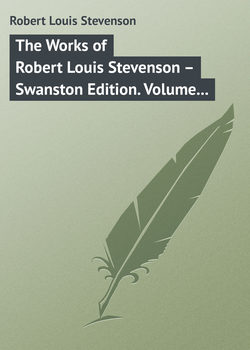Читать книгу The Works of Robert Louis Stevenson – Swanston Edition. Volume 23 - Robert Louis Stevenson - Страница 5
THE LETTERS OF ROBERT LOUIS STEVENSON
1868-1882
I
STUDENT DAYS AT EDINBURGH
To Mrs. Thomas Stevenson
ОглавлениеAn early Portfolio paper On the Enjoyment of Unpleasant Places, as well as the second part of the Random Memories essay, written twenty years later, refer to the same experiences as the following letters. Stevenson lodged during his stay at Wick in a private hotel on the Harbour Brae, kept by a Mr. Sutherland.4
Wick, Friday, September 11, 1868.
MY DEAR MOTHER, – … Wick lies at the end or elbow of an open triangular bay, hemmed on either side by shores, either cliff or steep earth-bank, of no great height. The grey houses of Pulteney extend along the southerly shore almost to the cape; and it is about half-way down this shore – no, six-sevenths way down – that the new breakwater extends athwart the bay.
Certainly Wick in itself possesses no beauty: bare, grey shores, grim grey houses, grim grey sea; not even the gleam of red tiles; not even the greenness of a tree. The southerly heights, when I came here, were black with people, fishers waiting on wind and night. Now all the S.Y.S. (Stornoway boats) have beaten out of the bay, and the Wick men stay indoors or wrangle on the quays with dissatisfied fish-curers, knee-high in brine, mud, and herring refuse. The day when the boats put out to go home to the Hebrides, the girl here told me there was “a black wind“; and on going out, I found the epithet as justifiable as it was picturesque. A cold, black southerly wind, with occasional rising showers of rain; it was a fine sight to see the boats beat out a-teeth of it.
In Wick I have never heard any one greet his neighbour with the usual “Fine day” or “Good morning.” Both come shaking their heads, and both say, “Breezy, breezy!” And such is the atrocious quality of the climate, that the remark is almost invariably justified by the fact.
The streets are full of the Highland fishers, lubberly, stupid, inconceivably lazy and heavy to move. You bruise against them, tumble over them, elbow them against the wall – all to no purpose; they will not budge; and you are forced to leave the pavement every step.
To the south, however, is as fine a piece of coast scenery as I ever saw. Great black chasms, huge black cliffs, rugged and over-hung gullies, natural arches, and deep green pools below them, almost too deep to let you see the gleam of sand among the darker weed: there are deep caves too. In one of these lives a tribe of gipsies. The men are always drunk, simply and truthfully always. From morning to evening the great villainous-looking fellows are either sleeping off the last debauch, or hulking about the cove “in the horrors.” The cave is deep, high, and airy, and might be made comfortable enough. But they just live among heaped boulders, damp with continual droppings from above, with no more furniture than two or three tin pans, a truss of rotten straw, and a few ragged cloaks. In winter the surf bursts into the mouth and often forces them to abandon it.
An émeute of disappointed fishers was feared, and two ships of war are in the bay to render assistance to the municipal authorities. This is the ides; and, to all intents and purposes, said ides are passed. Still there is a good deal of disturbance, many drunk men, and a double supply of police. I saw them sent for by some people and enter an inn, in a pretty good hurry: what it was for I do not know.
You would see by papa’s letter about the carpenter who fell off the staging: I don’t think I was ever so much excited in my life. The man was back at his work, and I asked him how he was; but he was a Highlander, and – need I add it? – dickens a word could I understand of his answer. What is still worse, I find the people here-about – that is to say, the Highlanders, not the northmen – don’t understand me.
I have lost a shilling’s worth of postage stamps, which has damped my ardour for buying big lots of ’em: I’ll buy them one at a time as I want ’em for the future.
The Free Church minister and I got quite thick. He left last night about two in the morning, when I went to turn in. He gave me the enclosed. – I remain your affectionate son,
R. L. Stevenson.
4
See a paper on R. L. Stevenson in Wick, by Margaret H. Roberton, in Magazine of Wick Literary Society, Christmas 1903.
